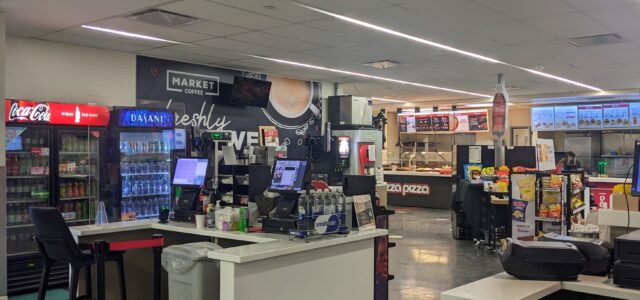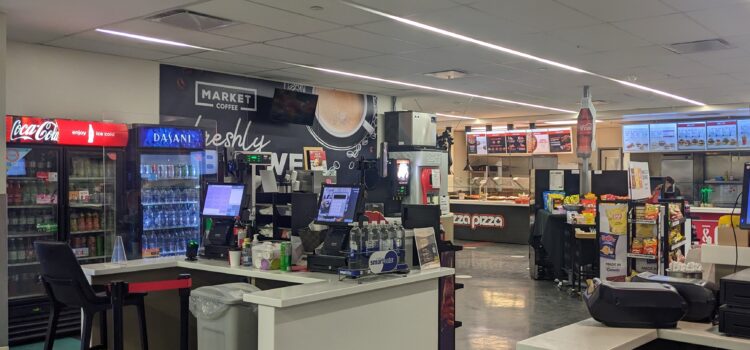

“Always tired and still don’t make enough”: students struggle with inflation in Canadian economy
CanadaNewsPoliticsToronto Mar 28, 2023 Prabhy Rehal

High rates of inflation over the last year have been hitting cash-strapped Canadian post-secondary students hard over the last year — causing a lot of students to worry about their financial future.
According to the Bank of Canada, “inflation is nearly eight per cent — a level not seen in nearly 40 years.”
In a report by the Canadian Council for Youth Prosperity (CCYP) they define inflation as “the rate of increase in prices of goods and services over a given period. It is a broad measure of overall increases in prices in a country or the cost of living in a country.”
About the recent increases, the report says, “The surge in inflation has multidimensional impacts on Canada’s youth population, who were recently the most adversely affected demographic group in terms of getting and retaining employment during the COVID-19 pandemic.”
“My parents pay for my tuition, but I have to pay for rent, groceries, transportation and personal expenses and even with their help I’m struggling. I go to work four days a week and still go to school. [I’m] always tired and still don’t make enough, ” said Jiya.
Jiya is a 19 year-old international student from India studying Marketing at Humber’s North Campus and has felt the impacts. Even with the help of her parents back home, she is still struggling to make ends-meat and for her it’s only getting worse.
According to a report by Statistics Canada in January, prices did rise at a slower pace than in December 2022 but still higher than the previous year. The Consumer Price Index (CPI) for food went up from 5.7 per cent from last January to 10.4 per cent this year.
Other costs are also increasing. For example, last month the Toronto Transit Commission board announced a 10 cent rise in fares.
Students are feeling the burden of the cost of living and making adjustments to their futures, so they can lessen the financial burden
“I don’t want debt when I’m done with school so I’m saving up now and the program is all online so I don’t have to travel and I can work more. Plus, I think I can make a lot in real estate,” Janessa said.
Janessa is a 20 year-old who is currently working in retail but next September will be doing Humber’s Online Real Estate program next September. She’s currently saving up.
Saving isn’t easy, especially in this economy as Janessa said “It’s really hard to save because of all of the holidays. I try not spending too much on stuff but it all adds up”
Janessa has about $1,100 saved. By her estimation, she still has a long way to go. She has noted recent increases to her tuition, which make her uneasy.
Janessa doesn’t want to take OSAP or any other loans because of the burden it will have on her future. “I don’t want to get weighed down with debt after I graduate, I hear so many people struggling with jobs and payments. I don’t want that,” she said.
Many of the students Skedline spoke to weren’t very optimistic about their future and finding jobs. International students like Jiya are considering going back to their homeland because of the bleak future in the GTA.
According to a report by Immigration, Refugees and Citizenship Canada, International students earn less than domestic students during the first five years after graduating.
Jiya knows this all too well. “I’ve tried getting internships and part-time jobs in my field but everyone wants someone with experience, but how do I get that without having a job?”
“Sometimes it seems like all I’ll end up doing is a minimum wage job —but then what’s the point in coming to Canada,” she said.
Domestic students aren’t feeling any better.
“I know it’s not a lot of money but I still live with my parents and only have to pay for gas and my phone. So I thought I would be able to go for at least a couple of months but I realized that I didn’t have enough savings to leave my current job,” he said.
Dasjuan 22, a recent media graduate from Niagara College, hasn’t been able to leave his retail job because money is tight. He saved up almost $2,000 to be able to quit his part-time job when he was done school and find a media job but the money isn’t going as far as he was hoping.
Dasjaun plans to get his Master’s degree but now has to wait because he doesn’t know if he or his family can afford it.
“My parents are really helpful but I went them to save for their retirement and I feel bad when I ask them for anything,” he said.






